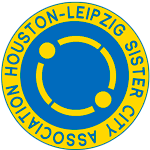CARMEN
ACT I
In a town square in Seville, Spain, soldiers guarding the cigarette factory idly watch the passersby. Micaela, a young country girl, enters the square in search of one of the soldiers, Don José. Led by an officer, Moralès, the soldiers surround her and try to detain her, but Micaela flees. Afterwards, José’s military unit arrives. At noon, the young men of the town gather to watch the women as they come out of the cigarette factory on a break from work. One of the women, the Gypsy Carmen, tells her friends that love is “a wild bird that cannot be imprisoned.” Before returning to work, she flirtatiously tosses a flower at Don José. Micaela returns, this time with a letter from José’s mother. José resolves to honor his mother’s wishes by marrying Micaela. Suddenly, screams are heard from the factory: Carmen has been involved in a fight and has slashed another woman’s face. While Lieutenant Zuniga drafts the order for her imprisonment, she is put into José’s custody. Carmen persuades him to let her escape by promising a future rendezvous.
ACT II
At Lillas Pastia’s inn, Carmen and two friends, Frasquita and Mercedes, sing of the Gypsy life. Lt. Zuniga tells Carmen that José was thrown in prison for allowing her to escape, but that he has just been released. The bullfighter Escamillo arrives with his entourage and asks Carmen if she will ever love him. Dancaire and Remendado, two revolutionaries, try to convince Carmen and her friends to accompany them on their next mission, but Carmen refuses, saying she is in love with José and is awaiting his return. When José arrives, Carmen sings and dances for him, but a distant bugle sounds and he says he must return to the barracks immediately. She invites him to desert the army and join the revolutionaries, but he refuses, and Carmen mocks his cowardice. As he is leaving, José encounters Zuniga, who has come in hopes of seeing Carmen. The jealous José strikes his superior officer. Now an outlaw, he has no choice but to desert the army and join Carmen and her friends.
INTERMISSION
ACT III
The revolutionaries are busy moving their goods through the dangerous hillside. Carmen, now tired of José’s jealousy, reads her fortune in the playing cards. She draws the death card. When the revolutionaries head down the mountain to bribe the customs officer, José is left as a lookout. On her way up the mountain to find José, Micaela hears a rifle shot and takes cover. José has fired a warning shot at Escamillo, who has come in search of Carmen. Escamillo tells José he is in love with Carmen and they start to fight but are separated by the returning gang. Remendado then discovers Micaela, who has come to beg José to return home to his dying mother. Carmen urges him to leave; José is convinced she wants to be rid of him in order to take up with Escamillo. José leaves with Micaela, warning Carmen that he will come back.
ACT IV
An excited crowd gathers for the bullfight. Outside the ring, Frasquita and Mercedes pull Carmen aside and tell her to be careful because José has been seen in the crowd. Carmen, however, ignores their warnings and bravely remains for a final encounter. José pleads desperately with her to come back to
him. As she tells him she can never love him again, the crowd is heard cheering Escamillo’s victory in the ring. Realizing that he can never possess Carmen, José stabs her to death.
PERFORMANCE HISTORY
Carmen was last staged at Houston Grand Opera during the 2005–06 season; prior to that, it was seen in seasons 2000–01, 1994–95, 1988–89, 1980–81, 1971–72, 1967–68, and 1959–60. In addition, it was seen on HGO’s Multimedia Modular Stage in 2001 and 1998, was performed by Texas Opera Theater during the 1985–86 season, and was part of the 1974 Spring Opera Festival. Carmen lasts approximately 3 hours, including one intermission. Performances beginning at 7:30 p.m. will end at approximately 10:30 p.m. Performances beginning at 2 pm. will end at approximately 5 p.m.
At HGO performances, the excellent natural acoustics of the theaters in the Wortham Theater Center are relied upon to convey sound from the stage and pit. Electronic sound enhancement is used only with spoken dialogue (as in The Merry Widow), in musicals (as in A Little Night Music), in sound effects (thunder), and at the composer’s direction (as in Nixon in China and The Little Prince). Visible microphones are positioned to record performances for possible future radio broadcasts and for archival purposes.
